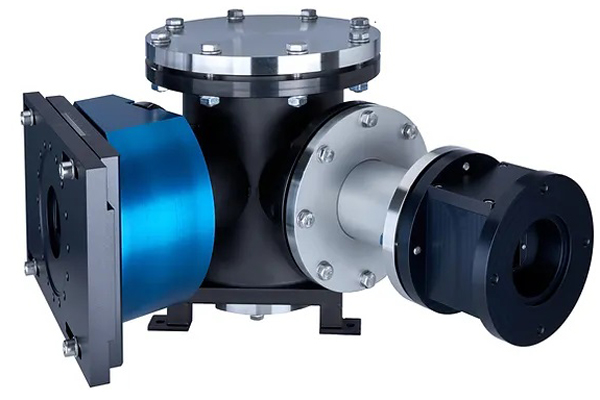
easyLIGHT XUV
high-efficiency spectrometer
flat-field normal-incidence spectrometer
highest efficiency due to proprietary no-slit design
wavelength range from 30 to 250 nm
most compact spectrometer in its class
modular, turn-key design
easyLIGHT XUV provides wide-band spectral measurements with unprecedented efficiency. The no-slit design directly images the radiation source and thus eliminates the cumbersome entrance slit. The spectral range 30 to 250nm conveniently covers many applications in HHG and plasma diagnostics. With its normal-incidence design, easyLIGHT XUV offers straightforward installation and alignment, compared to grazing-incidence spectrometers.
The modular design matches a variety of experimental geometries and configurations. easyLIGHT features an integrated slit holder and closed-loop motorized grating positioning.
Detector options include both XUV CCDs for highest resolution and dynamic range, and MCP/CMOS assemblies for broadest wavelength coverage and gated / intensified detection. Please contact us to discuss your needs.
Customized derivatives of the easyLIGHT spectrometer are also available.
No-slit design
The proprietary spectrometer design by HP Spectroscopy uses direct source imaging. Consequently, a narrow entrance slit is not needed and light collection is maximized. Comparing with traditional spectrometer architectures, a factor of 20 more light reaches the spectrometer detector. The architecture also greatly increases day-to-day operation robustness.


Applications
High-harmonic generation sources
Attosecond science
Intense laser-matter interaction
Laser and discharge produced plasma sources
Synchrotron beamline characterization
Free-electron lasers
Results

Measurement of radiation emitted from a CO2-based low-temperature plasma. Laser-produced plasma EUV sources based on a xenon gas puff target were used to irradiate and ionize the CO2 gas. In the VUV range, multiple emission lines corresponding to C I, C II, and O I, as well as CO molecular bands are visible.
A. Bartnik et al, Spectral investigations of low-temperature plasma induced in CO2 gas by nanosecond pulses of extreme ultraviolet (EUV)
Plasma Sources Sci. Technol. 30 (2021) 115008

